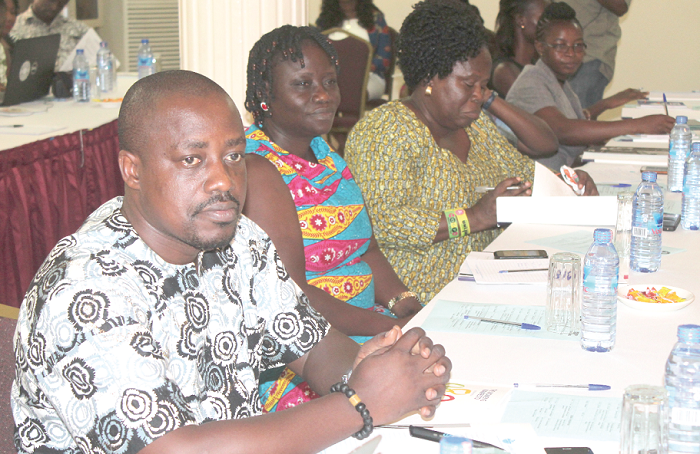
Forum discusses passage of Affirmative Action Bill into law
Civil society and non-governmental organisations, including some governmental organisations, have gathered to discuss how to get the Affirmative Action Bill passed into law.
Advertisement
Organised by the International Federation of Women Lawyers (FIDA) — Ghana and supported by the Friedrich Ebert Stiftung (FES), the dialogue among government agencies, civil society and non-governmental organisations is to revive action around the passage of the bill into law.
That is against the backdrop of pledges made by President Nana Addo Dankwa Akufo-Addo in the State of the Nation Address last month that affirmative action would be one of his priority actions.
The former Minister of Gender, Children and Social Protection, Nana Oye Lithur, announced the passage of the bill into law before the end of 2016.
The bill, which seeks to increase the participation of women in decision making, however, could not be passed as promised, as it was overtaken by the events of the 2016 electioneering period.
The bill proposes that anyone who insults a woman just because she is vying for public office should be liable for prosecution.
Clause 38 of the draft bill says that, “A person who victimises, obstructs or exerts undue influence and submits a female politician to verbal attack, among others, commits an offence.”
Upbeat
Nana Oye Lithur, who delivered a paper on “Affirmative Action Law; Planting seeds in a cultivated ground,” told participants to rally behind the Ministry of Gender, Children and Social Protection to get the bill passed into law.
“This issue must be depoliticised,” she maintained, stressing the fact that, “The Ghanaian woman is in a hurry to participate in governing Mother Ghana.”
Drawing interesting inferences from history and current efforts at gender equality, Nana Oye Lithur said from 1954 “when we began voting by adult suffrage until 2012, we had never had more than a 10 per cent representation of women in Parliament. It was only after 2013 that we have consistently gone past 10 per cent.”
“It has taken us 60 years to reach 13 per cent representation, does it mean it will take us another 60 years to double it to 26 per cent …?” she queried.
She was, however, upbeat that with the policy and legal framework solidly planted, all what was left was the massive mobilisation of effort and action for the passage of the bill into law.
Support
Welcoming participants, the President of FIDA-Ghana, Ms Joyce Oku, commended the FES for “their unwavering support in providing spaces for Ghanaian women to engage with each other regarding the necessity for an Affirmative Action Law.”
She emphasised the necessity of the law, saying that the representation of women in formal decision-making positions was an important factor in improving gender equality.
“The underlying motive for affirmative action is rooted in the Constitutional principle of equal opportunity, which holds that all persons have the right to equal access to self. development,” Ms Oku stated.
Highlights
The Resident Country Director of FES, Mr Fritz Kopsieker, in his statement said he remained an idealist in advocating the removal of all hindrances to the equality of women.
The acting Executive Director of FIDA-Ghana, Ms Susan Aryeetey, presented highlights of the bill.



